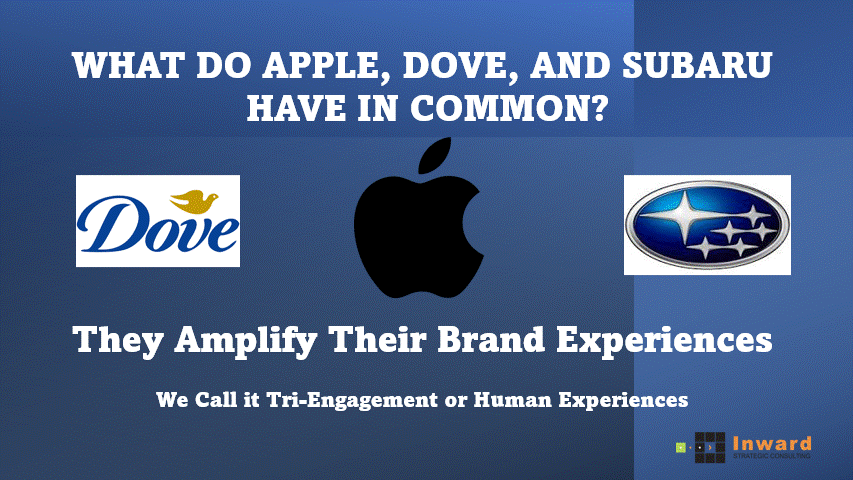Amplifying the Brand Experience: Uniting Employees, Partners, and Customers – We call it Tri-Engagement

Introduction: In today's competitive business landscape, brands are realizing that the key to success lies not only in their products or services but also in the way they engage their employees, partners, and customers. Amplifying the brand experience means actively involving these stakeholders in a way that enhances and strengthens how the brand is perceived by others. By fostering a sense of connection, collaboration, and shared commitment, organizations can create a powerful and impactful brand experience that drives customer satisfaction, loyalty, and overall business success.
Engaging Employees: A brand's employees are its ambassadors. When employees feel connected to the brand's mission, values, and goals, they become more than just workers—they become brand advocates. By involving employees in the brand experience, organizations can cultivate a sense of ownership and pride, leading to increased motivation, productivity, and innovation.
To engage employees, it is crucial to communicate the brand's vision and values clearly. This ensures that everyone understands the brand's purpose and can align their actions accordingly. Encouraging open dialogue, providing opportunities for feedback, and recognizing and rewarding outstanding performance all contribute to fostering a positive and inclusive work culture that amplifies the brand experience.
Engaging Partners: Partnerships play a significant role in amplifying the brand experience. Collaborating with partners, such as suppliers, distributors, or influencers, allows organizations to extend their reach, leverage expertise, and tap into new markets. When partners are aligned with the brand's values and share a common vision, they become integral in delivering a consistent and positive brand experience.
To engage partners effectively, organizations should establish clear expectations, provide regular communication channels, and foster mutually beneficial relationships. This can include joint marketing initiatives, co-creation of content or products, and sharing resources and knowledge. By involving partners in the brand experience, organizations expand their influence and reinforce the brand's message across various touchpoints, leading to increased brand visibility and credibility.
Engaging Customers: Customers are at the heart of any brand experience. Engaging customers means understanding their needs, desires, and expectations and creating experiences that resonate with them on a deeper level. By involving customers in the brand experience, organizations can build stronger relationships, drive loyalty, and encourage positive word-of-mouth referrals.
To engage customers effectively, organizations should focus on delivering exceptional customer service, personalized experiences, and meaningful interactions. This can be achieved through various channels such as social media, surveys, or customer feedback programs. By actively listening to customers, incorporating their feedback, and adapting strategies accordingly, organizations demonstrate their commitment to providing a brand experience that exceeds expectations.
Several companies have excelled at amplifying the brand experience by effectively involving their employees, partners, and customers. Here are a few examples:
- Apple: Apple is known for its ability to create a captivating brand experience that resonates with its customers. The company's retail stores, for instance, offer a unique and immersive environment where customers can explore and interact with Apple products. Apple's employees are trained to provide exceptional customer service, ensuring that every interaction reinforces the brand's commitment to quality, innovation, and simplicity. The brand's loyal customer base and enthusiastic community further amplify the brand experience through their advocacy and engagement.
- Subaru and the "Love" Campaign: Subaru has successfully created a brand experience centered around love and emotional connections. Their "Love" campaign emphasizes the brand's commitment to safety, reliability, and family values. Subaru portrays itself as a brand that cares deeply about its customers, their loved ones, and the world they live in. The campaign resonates with consumers by highlighting heartwarming stories and charitable initiatives. By involving their customers in these narratives, Subaru fosters a sense of community and loyalty, amplifying the brand experience beyond just the product itself.
- Dove Soap and the "Real Beauty" Campaign: Dove Soap's "Real Beauty" campaign has been a game-changer in the beauty industry. The campaign challenges conventional beauty standards and celebrates the diversity and authenticity of women's bodies. Dove promotes the idea of inner beauty and self-acceptance, encouraging women to embrace their unique features and feel confident in their own skin. By involving real women in their advertising and sharing their stories, Dove creates a brand experience that resonates on a personal and emotional level, empowering women and challenging societal norms.
Apple, Subaru and Dove have successfully amplified their brand experiences by aligning their customer experiences and campaigns with deeper values and emotions. By involving their customers in meaningful and relatable narratives, these companies have built strong connections, fostered brand loyalty, and positioned themselves as more than just product providers.
These companies demonstrate the importance of actively involving employees, partners, and customers to create a compelling and impactful brand experience. By fostering a sense of connection, collaboration, and shared commitment, these brands have been able to amplify their messages, inspire loyalty, and drive business success.
Conclusion: Amplifying the brand experience by actively involving employees, partners, and customers is a powerful strategy for organizations seeking to differentiate themselves in today's competitive market. By creating an environment where employees feel connected and motivated, collaborating with partners to deliver a consistent brand message, and engaging customers through personalized experiences, organizations can build a strong and compelling brand. This, in turn, leads to increased customer satisfaction, loyalty, and overall business success. As organizations continue to prioritize the amplification of their brand experience, they position themselves for long-term growth and competitiveness in the dynamic world of business.
About Inward
Inward Strategic Consulting is a 26-year-old management/creative consulting firm that helps clients achieve high performance by developing comprehensive business strategies and cultures aligned with their goals, processes, and resources. They specialize in internal/external branding strategies, change management, brand purpose, and market research. They offer proprietary methodologies such as Visioneering, Inward Marketing, Dialogue Marketing, Best Practice and Benchmarking, and Qualitative and Quantitative Market Research. They have worked with Fortune 100 companies including Walmart, McDonald's, Aetna, City of Hope, and many others.
Allan Steinmetz CEO
